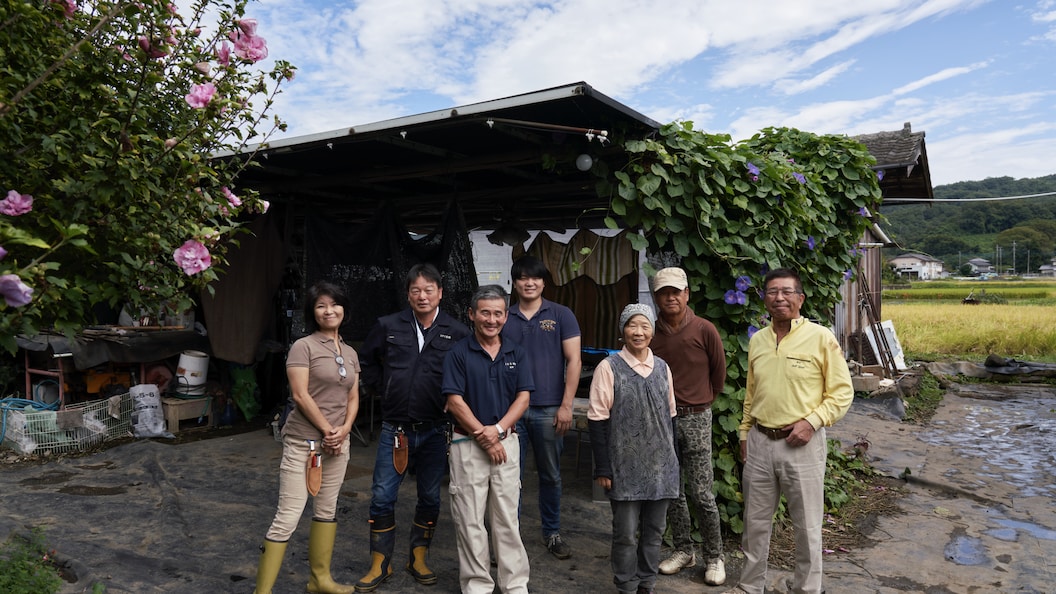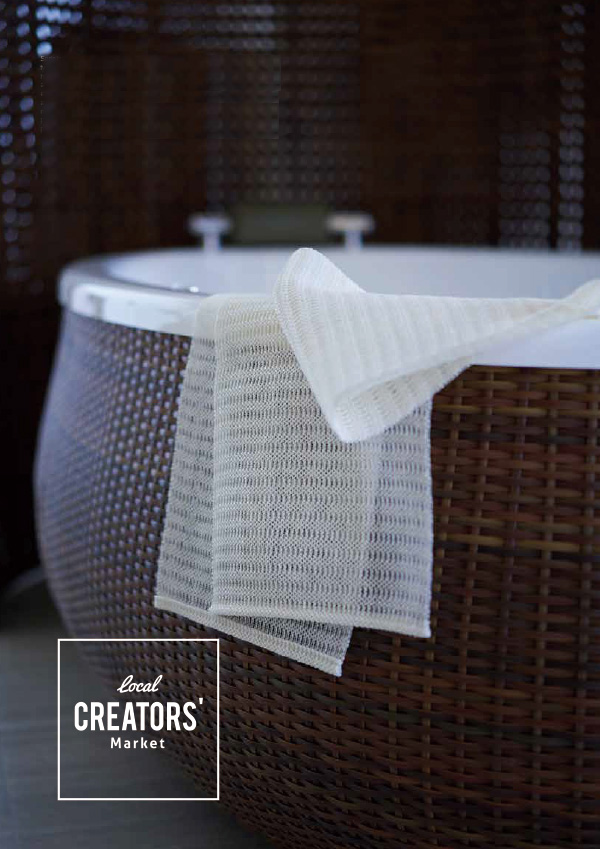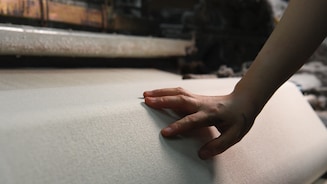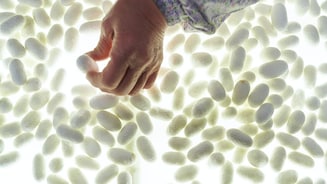Supporting Sericulture Farms in Decline
In Japan, sericulture farmers reverently call silkworms—kaiko—“Okaiko-san.” In decades past, many rural households engaged in sericulture. The larvae, a valuable revenue source, shared the family’s living space. The number of sericulture farms in Gunma prefecture peaked in 1970 at 66,200. As prices for cocoons plummeted, that number dropped to just 1,930 farms by 1999.
As of 2017, a mere 121 farms remained. With only 336 farms left nationwide now, the fate of the silk industry in Japan rests largely on Gunma. To this end, the prefectural government off ers support to new entrants.
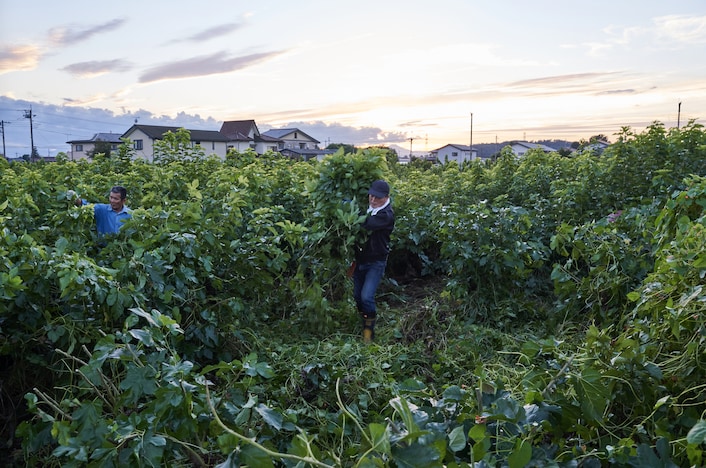
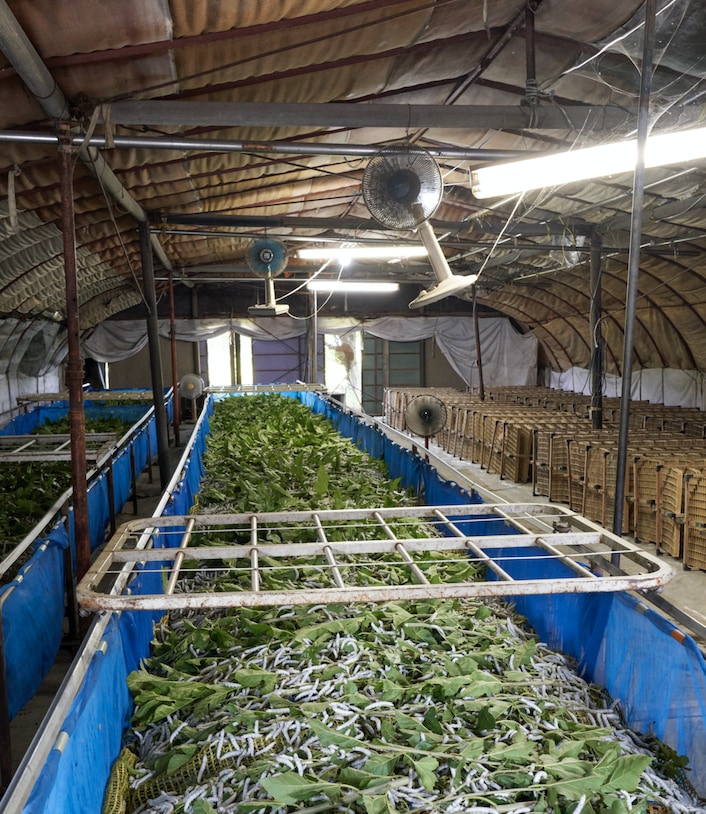
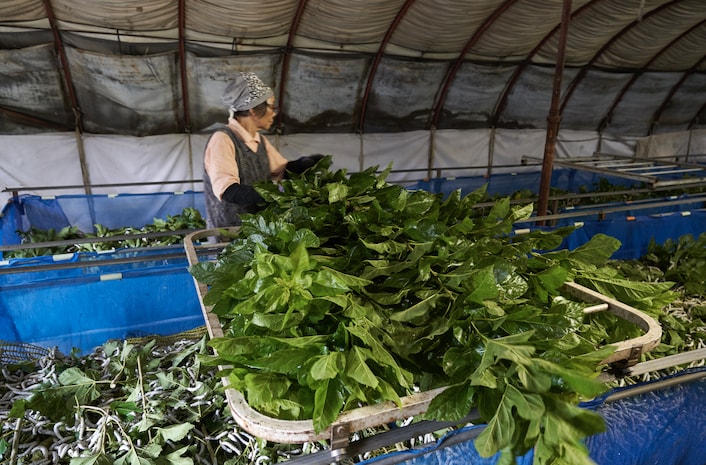
Gunma Silk is Environmentally Friendly
Usui Raw Silk Company in Annaka, Gunma, is Japan’s largest silk mill. In 1970 there were 106 silk mills operating in the prefecture.
Now, Usui is the only one left. It is the last bastion of support for sericulture farms producing high-quality cocoons in Gunma.
Each cocoon is spun of a single strand of silk. The reeling, or extraction, process unravels those individual fi laments and spins them together to make one much thicker thread. A huge reeling machine—like something you might imagine from the Machine Age of the early 20th century—is used for this. Nothing is computerized. With people operating the reeler and carefully tending the process, the silk rendered is of far higher quality.
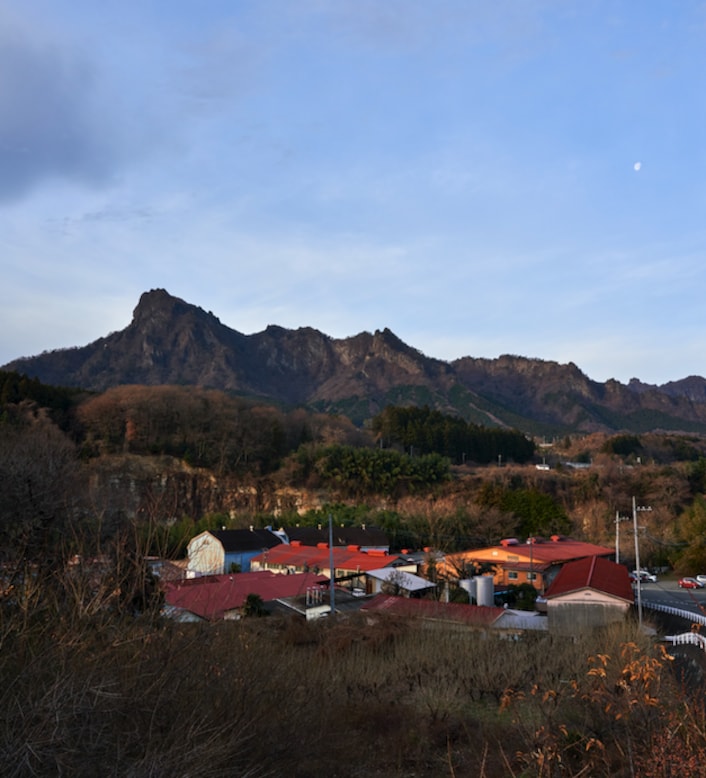
Silk making at Usui is environmentally conscious. Sustainability is emphasized; waste is minimized. The mill obtains cocoons only from sericulture farms that use no chemical pesticides in cultivating their mulberry trees. Once the silk fi lament has been harvested the expired pupae are used as food for monkeys at the Japan Monkey Centre, and for carp. Silkworm feces are collected and returned to the earth as fertilizer. No formalin or other disinfectants are used in the reeling process. Waste yarns are graded for quality and repurposed as spun silk. Such sustainable measures taken throughout the production process heighten the intrinsic quality and appeal of Gunma silk.
Please refer to the Story Book for more article.

